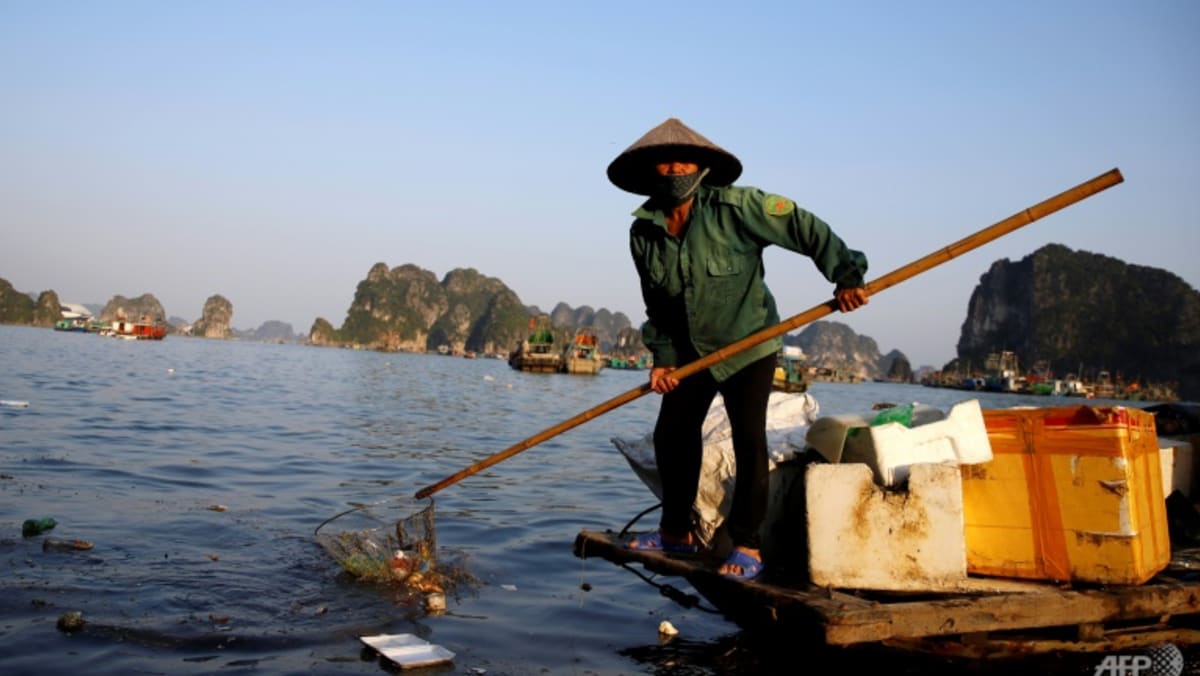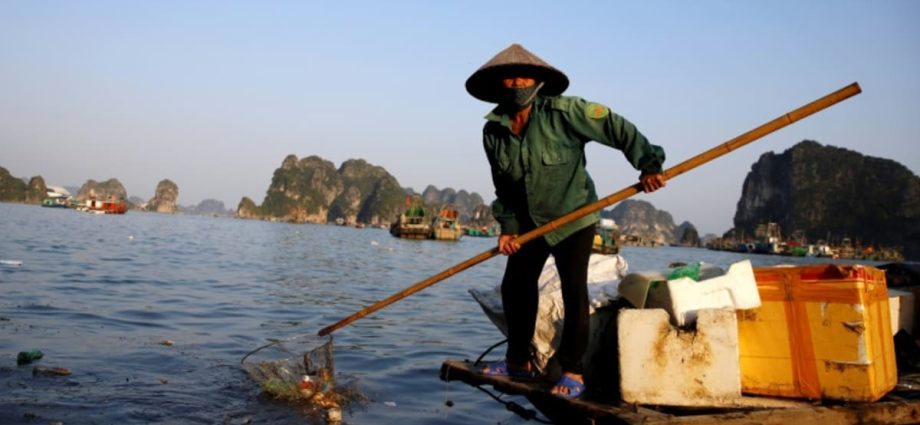
“PLASTIC POLLUTION CRISIS”
Pham Van Tu, a local resident and freelance tour guide, said he had received a lot of complaints from visitors.
“They read in the media that Ha Long Bay is beautiful, but when they saw a lot of floating trash, they didn’t want to swim or go canoeing and they hesitated to tell their friends and family to visit,” he said.
Rapid economic growth, urbanisation and changing lifestyles in communist Vietnam have led to a “plastic pollution crisis”, according to the World Bank.
A report in 2022 estimated 3.1 million tonnes of plastic waste are generated every year, with at least 10 per cent leaking into the waterways, making Vietnam one of the top five plastic polluters of the world’s oceans.
The volume of leakage could more than double by 2030, the World Bank warns.
Larissa Helfer, 21, who travelled to Vietnam from her home in Germany, said Ha Long Bay was beautiful but the trash problem would be one of her strongest memories of the trip.
“Normally you (might say) ‘Look at the view! Look at the fishing villages!'” she told AFP.
But here “you have to talk about the trash, (you say) ‘oh god… look at the plastic bottles and things in the sea.’ And it makes you sad.”
Thinh, the trash collector, grew up in Ha Long and remembers a very different bay.
“It didn’t look so terrible,” she said.
“Of course, a lot of work makes me tired and irritated,” she admitted. “But we must do our work.”

